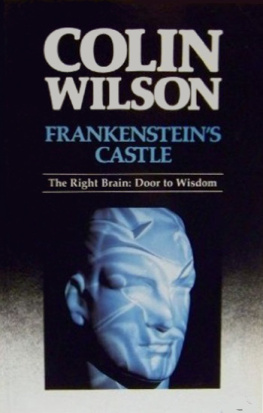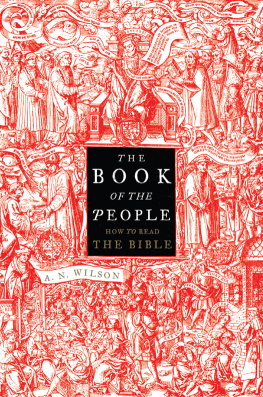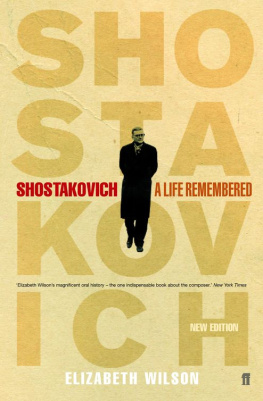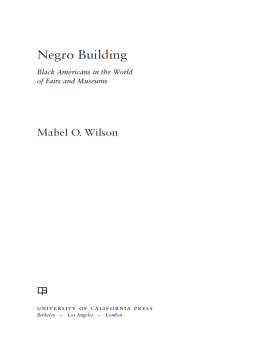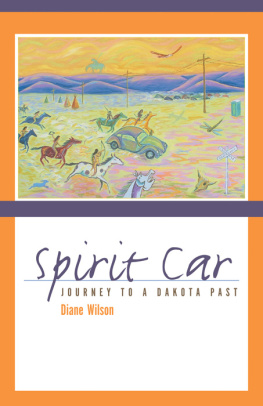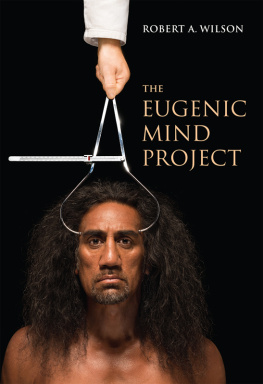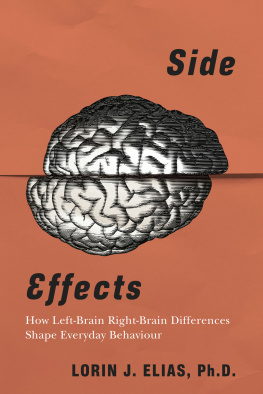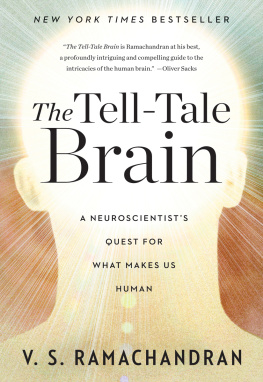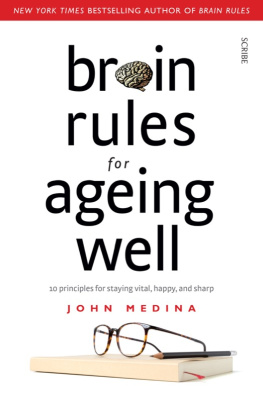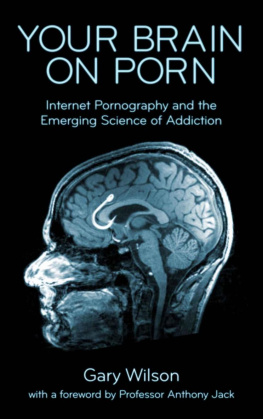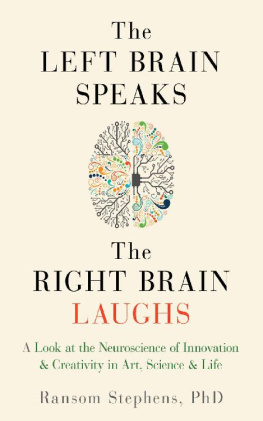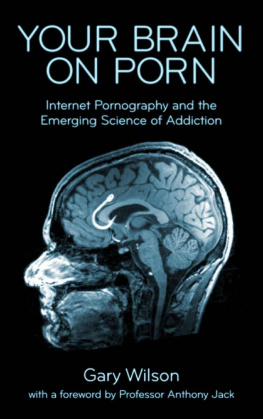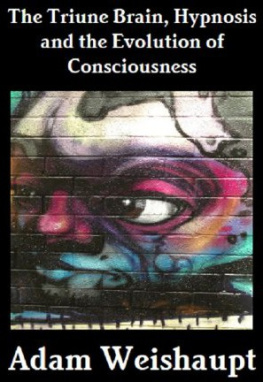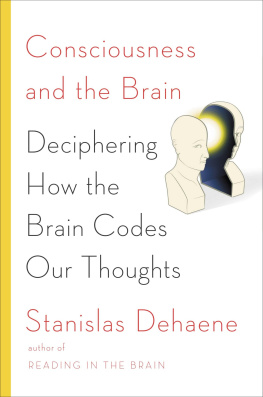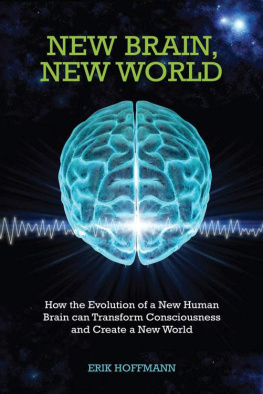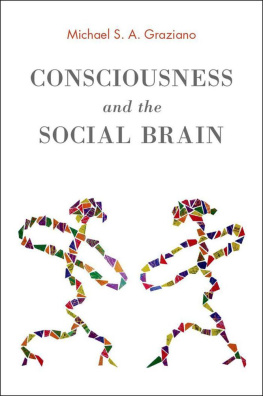To Tony Britton
with affection

Acknowledgements
I wish to acknowledge the help of Eddie Campbell, who not only suggested the writing of this book but offered many hints and suggestions. Also of two American correspondents, Dennis Stacy and Stephen Spickard, who went to a great deal of trouble to obtain for me details of the Basa case. Finally, my thanks to Idries Shah, for drawing my attention to Ornsteins work on the split brain.
CW
Detailed Contents
Chapter One: The Other Mode
Flashes of the other mode of consciousness. Examples. The Romantic Outsiders and the other mode. Is the other mode bad for the health? The near and the far. Des Esseintes at the Gare St Lazare. Maslow and the peak experience. T. E. Lawrence and primal perception. The robot and the doors of perception. Does the secret lie in the pre-frontal cortex?
Chapter Two: The Riddle of the Two Selves
Why do we have two brains? Is one a spare? The great cerebral commissure. Experiments to prevent epilepsy. Sperry investigates. Man has two separate minds. You live in the left half of the brain. Are poltergeists due to the inhabitant of the right-brain? The Rosenheim case. Dowsing. The red-and-green light experiment. Poetic experience and the right-brain. The false me. Learning to turn intuitions into words. The left looks inward, the right outward. The right controls our energy supply. How can we persuade it to give us more? Freud and mesmerism. Charcot and his hysterical patients. Freud discovers the unconscious. He becomes convinced that consciousness is a puppet. The real cause of neurosis: negative feedback between the halves. The Laurel and Hardy theory of neurosis. Janet on hysteria. Cyril Burts case of May Naylor. Wilder Penfields discovery about memory-storage. I am bigger than I realise. Steppenwolf and Yeats. The partial mind. Do we all suffer from hysteria? James and his Energies of Men. The habit of inferiority to the full self. How can we get rid of the habit?
Chapter Three: More Mysteries
The case of Teresita Basa, and the possession of Mrs Chua. Is personality a part of the structure of the brain? The case of Jasbir Lal Jat. The case of Lurancy Verrum. The case of Louis Viv. Christine Beauchamp and Sally. Doris Fischer and Margaret. Levels of personality? Different brain patterns of the personalities. Galton induces persecution mania. James and automatic writing. Is the left a villain? Hesses Russian Man. The Dam Busters and the two beams of consciousness. Gibbon and the Decline and Fall. Forgetfulness of existence. What has gone wrong with human evolution? We fail to make proper use of consciousness. The alliance of the left-brain and the robot: how it operates. Durrenmatts Angel and Greenes whiskey priest. How can we break through to a new evolutionary level?
Chapter Four: Frankensteins Castle
Wards Drug Takers Notes: a state of consciousness already more complete than the fullest degree of ordinary awareness. Disappearance of the sense of time. The role of serotonin. The pineal gland. The brain is a Frankensteins Castle. The right-brain as criminal. Huxley and mescalin. The drawbacks. The bad trip. My own mescalin experience. The objection to psychedelics. Cosserys advocacy of hashish in A Room in Cairo. The objections. Julian Jaynes and his theory of the bicameral mind. The development of the left-brain ego. Jean-Jacques Rousseau and the rejection of civilisation. Freuds Civilisation and Its Discontents. De Sade unintentionally demonstrates the fallacy in the rejection argument. How to avoid being trapped in left-brain consciousness. Hans Selye and stress. Coue, Schult and Liebault. Auto-suggestion and its power to repair the homeostatic system. Kamiya and bio-feedback. Neil Millers trained rats. The objections to bio-feedback as a solution: James and the Chautauqua Community. Aleister Crowley and Jane Wolfe. Crowleys limitations. Jacob Boehmes mystical vision. Robert Graves and The Abominable Mr Gunn. Plotinus. The dual ego.
Chapter Five: The Powers of the Right
Thomson J. Hudson and The Law of Psychic Phenomena. The objective mind and the subjective mind. The powers of the subjective mind: man who talked with Socrates. Zerah Colburn as an example of the subjective mind. Hypnosis and telepathy. Janets case of Leonie. Dr Julian Ochorowitz and paranormal powers induced by hypnosis. Ochorowitz visits Janet. Liebaults experiment: the red hat. Clairvoyance under hypnosis. Didier and travelling clairvoyance. Hudson cures a relative suffering from arthritis. Multiple personality and paranormal powers. Christine Sizemore and ESP. The Stockwell poltergeist case. Where does the energy come from? The earth? John Taylors electromagnetic theory. William Rolls epilepsy theory. Spontaneous combustion. Human electric eels. The mystery of animal homing. Sensitivity to earth magnetism. Levitation. St Joseph of Copertino. Sir Jack Harris and the Polish violinist.
Chapter Six: Clues
Personal experiences. The importance of optimism. The importance of the Christmas experience. Loss of confidence. The Bhagavad Gita. Marriage and the study of Christian mystics. Is human life basically futile? The paradoxical nature of freedom. Raskolnikov and his narrow ledge. Ivan Karamazovs sinner. The St Neot margin. The insight at Teignmouth. The London train experience. Control of consciousness by effort. The Cheltenham experience. The bicycle ride. The walk over Helvellyn. Panic attacks. The attack at Ullswater. Robert Ardrey and the dominant 5 per cent. The flatworm experiment. The real dangerthe instinct-robot alliance.
Chapter Seven: Discoveries
Hudsons three propositions. The turn of the tide. No mad monsters in the castle. Howard Miller and hypnosis. The dentist who could control bleeding. Millers experiments with cancer patients. Is thought independent of the brain? The Unit of Pure Thought. The inner phantasmagoria. The computer. Is Miller merely echoing Husserl? My own insight into the controlling ego. The two Irish navvies. Hemingways Soldiers Home. The ladder of selves. Habit-neurosis. D. H. Lawrence and his objections to the personal ego. ForgetfulnessNietzsches cows. Yeats and Michelangelo. Frankls prisoners at Dachau. The power of suggestion. Maslow and his students. The hosepipe and the garden tap. The flatworm experiment again. The mechanism of life failure. Failure of the triple-alliance. The ego is to blame. The fatal alliance of instinct and robot. Why does the split-brain operation make so little difference? Mozart and creativity. The vicious circle. Graham Greene and the Revolver in the Corner Cupboard. The housewife who discovered she was free. Human beings are like grandfather clocks driven by watchsprings. The if-only feeling. To be free is nothing; to become free is heaven. The broken spring. Ramakrishna and samadhi. Summary: the newness of the triple alliance. Ramakrishnas grass-eating tiger. Alienation and self-division: Kierkegaard, Camus and Sartre. My own analysis.
Chapter One: The Other Mode
As I approach the age of fiftyjust twice the age at which my first book, The Outsider, appearedI realise more clearly than ever that my life has been dominated by a single obsession: a search for what I call the other mode of consciousness.
An example will clarify my meaning.
A musician friend once told me how he had returned home after a hard days work feeling rather tired and depressed. He poured himself a whisky, and put a record on the gramophoneit was a suite of dances by Praetorius. As he drank the whisky, he began to relax. Suddenly, he says, he took off. The music and the whisky entered into some kind of combination that produced a feeling of wild happiness, a rising tide of sheer exhilaration.
Next page
